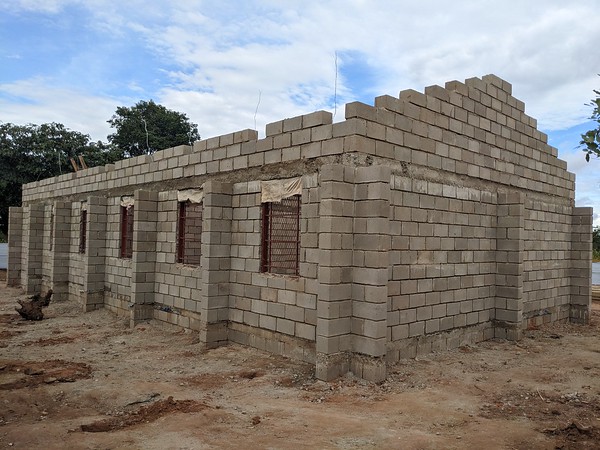The Truth About Trek

Every year, Harriton’s chapter of the non-profit BuildOn organizes several service projects within the community, ranging from park cleanups to tutoring services to food packaging initiatives. Yet, BuildOn also tackles service through a global lens, embarking on a yearly trek to one of a select few nations with notably low levels of education and literacy, raising money for and participating in the physical construction of a school in an especially rural community.
While such humanitarian endeavors are typically applauded, Trek, and other similar charitable efforts, have recently come under fire by some who perceive these sorts of trips as manifestations of “voluntourism” — travel that combines vacation and volunteering. Critics of voluntourism argue that these trips typically only benefit the targeted communities on a short-term scale and may ultimately lead to an unhealthy reliance on the sponsoring organization. Further, volountourism’s opponents add that such experiences likely offer more benefit for travelers’ college applications and social media than members of the communities themselves.
Such observations are certainly valid critiques, as evidenced by the ever-growing and almost-paradoxical Indonesian orphanage tourism industry, and Ghanians’ unwillingness to “purchase health insurance since they knew every few months there would be a ready and willing supply of foreign volunteers to bring medication.” Thus, the question lies in whether or not BuildOn’s Trek adheres to the criteria of voluntourism. As a member of Harriton’s 2023 Trek Team to Malawi, I can confidently say that it does not.
Before we arrived in our community, a rural, agricultural center by the name of Msusu, my greatest fear was that we would not be wanted or welcomed by the members of the community. After all, white saviorism often manifests in pompous, uninvited white people stomping on other cultures and demanding that they adhere to Western standards. I was terrified that Trek would ultimately, even unconsciously, embody this cliche.
Yet, my experience was exactly the opposite. Not only were we welcomed with open arms via a stunning, vibrant, and culturally immersive ceremony, but with the knowledge of a conscious partnership between the guests and residents of Msusu. Community leadership signed a covenant with BuildOn staff expressing their willingness to send an equal number of boys and girls to this new school after its establishment, and settled on terms of manpower and construction resources that worked for both parties, an equivocal relationship rather than an imposition of Western standards.
Another key component of voluntourist endeavors is their lack of longevity. Yet, the work accomplished by BuildOn continues to be impactful for long after a trek team leaves their community, as these schools will promote education and literacy for years to come. While in Malawi, my team actually had the privilege of visiting a recently constructed school in a nearby community, and speaking to the town’s residents about the impact of the school on their lives.
Not only did the newly constructed school attract swarms of local children, but also those from further outside the village, which in turn helped the community achieve economic prosperity. Older community members, mostly women, also utilized the adult literacy programs. Seeing the cycle of literacy overcome on an intergenerational scale that transcended gender barriers was inexplicably moving and an experience I will never forget. Similar results are reaped from the 2,250+ schools BuildOn has constructed around the world, which is what fundamentally differentiates Trek from short-term-oriented voluntourist projects.
One less favorable aspect of Trek that I will acknowledge is the length of time we spent in Msusu — only five full days. Obviously, the brevity of our stay made full cultural immersion or the acquisition of proficiency in the native language of Chichewa impossible, but despite this, I do feel as if I made genuine connections with members of the community of all ages.
Furthermore, in acknowledging that the types of students who can fundraise enough money for Trek typically come from wealthy backgrounds, it is important to consider that they are accustomed to very different living conditions. In fact, I watched many of my peers become very sick during our time in Msusu simply because of their bodies’ disorientation to a different timezone, diet, and intensity of labor. While, of course, Trek is about serving the community, volunteers cannot be of much real assistance if they are incapacitated, so there may have been some underlying value to the almost transitory nature of our time in Msusu.
Another element I feel is worth acknowledgement is the use of social media following Trek. Eager to share my experiences, I posted images and videos of Msusu’s beautiful scenery and people, specifically the children. Though spending time with the young recipients of the school-to-be was an important aspect of my time in Malawi, I realized a few weeks later that there is an inherently exploitative and patronizing nature to sharing such content without consent. Though this is not necessarily a fault of BuildOn itself, Trek certainly fosters a culture that normalizes an exhaustive parading of the experience.
Overall, though I will not falsely claim that Trek is perfect, and there are elements of my experience that I would change, the work that BuildOn is doing absolutely does not fall under the label of performative voluntourism. I had an incredible and meaningful experience in Malawi that I will carry with me for the rest of my life — and I highly encourage anyone interested in such involvement to pursue Trek, but in doing so, be conscious of your impact and ensure that your actions do not fall into white saviorism.

Arielle is an IB Senior who is very excited for her fourth and final year with The Banner. Outside of The Banner, you can find her telling unfunny jokes...

